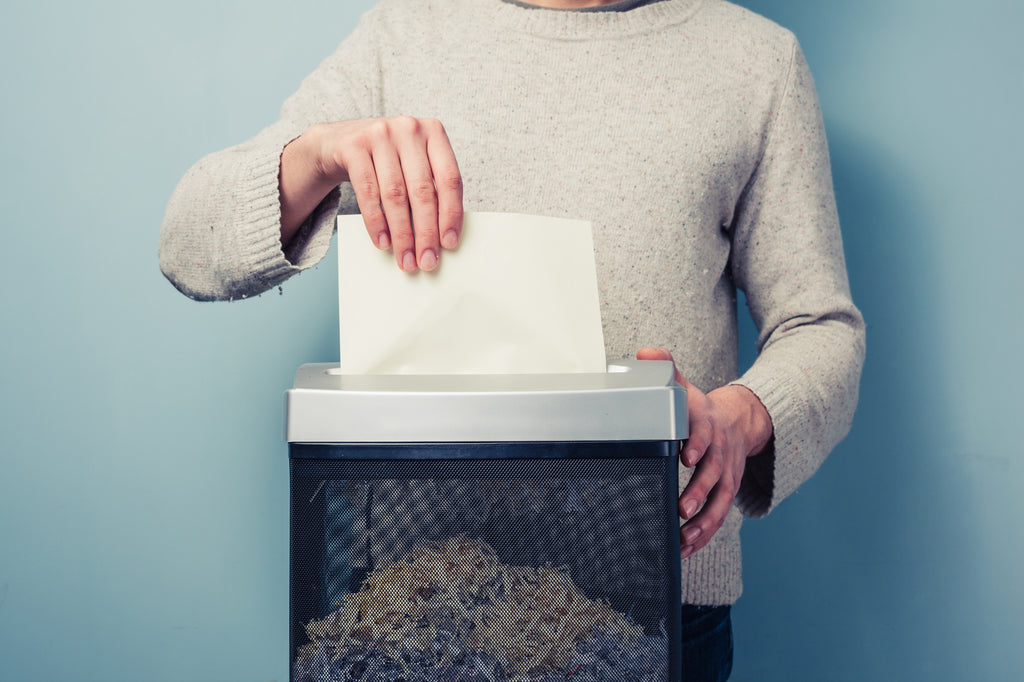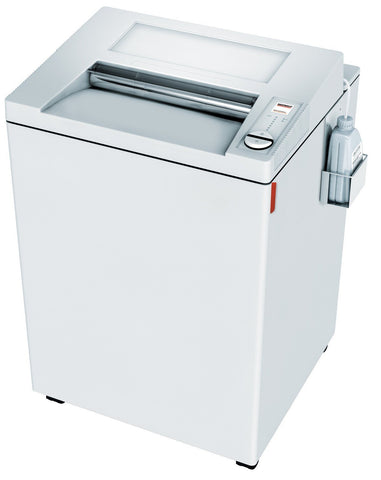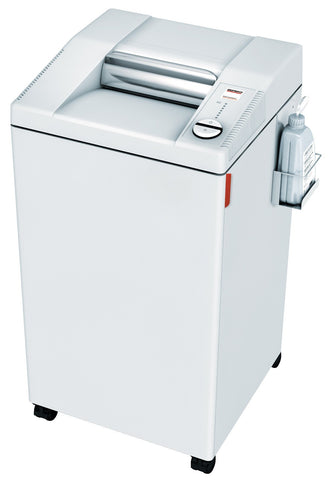The average office worker in the United States uses 10,000 sheets of paper per year. With millions of Americans working office jobs, that adds up. There must be something else we can do with that paper than just tossing it in the garbage.
Paper shredders can offer many alternative means of disposal.
We all know that paper shredders are invaluable for keeping delicate information from getting into the wrong hands. But that's hardly the only benefit of document shredding.
Shredding your paper waste also benefits the environment in a number of ways.
Document shredding reduces waste
Every year, we dump billions of pounds of garbage into landfills.
In 2006, over 250 million tons of waste ended up in landfills. The EPA estimates that over thirty percent of this waste comes from paper waste.
Shredding and recycling paper keeps more waste from going to the landfills, which reduces the need to build new landfills.
Diverting paper from landfills also reduces the build-up of methane and other toxic gasses. These gasses release into the atmosphere, where they feed the greenhouse effect and perpetuating global warming.
When less paper waste goes to landfills, fewer greenhouse gasses are created, slowing climate change and improving our environment.
With as much paper as we use on a daily basis, attempts to keep that waste out of landfills quickly add up.
Advantages of recycling
Many waste management companies offer special shredded paper pickup services for commercial businesses.
Shredded paper has shorter fibers than full-sheet paper. As a result, the products made with recycled shredded paper are a lower grade.
However, these lower-grade paper products are still usable. Shredded paper can be recycled into paper towels, toilet paper, or napkins.
Recycling paper reduces the demand for virgin paper pulp. This reduces the need for new timber, decreasing deforestation.
Virgin pulp requires a greater amount of water to process than recycled paper, leading to more wastewater.
Processing virgin pulp into new paper also uses many hazardous chemicals. Despite safety measures, these chemicals make their way into the wastewater, which ends up in freshwater supplies.
Recycling paper uses far fewer chemicals and doesn't require as much water. This leads to less pollution leeching into freshwater ecosystems.
Some municipal waste management services don't accept shredded paper unless it is completely separated from other recyclable materials. Look up your local restrictions before dumping your shredded paper in your recycling bins.
Shredded paper can be reused in a number of ways
Packing material
If your local waste management company doesn't accept shredded paper, there are many other ways shredded paper can be reused.
If your company regularly ships fragile products that need to be carefully packed, you are probably spending a lot of money on styrofoam peanuts.
Besides the strain on the budget, styrofoam takes over five hundred years to break down, if it breaks down at all.
Shredded paper is a great alternative to styrofoam peanuts, and it's environmentally friendly. Compared to styrofoam, paper waste is biodegradable within only five months.
And if you already do a lot of document shredding, it's free.
Compare this with expensive, styrofoam peanuts, and you have an easy decision before you.
Insulation
Fiberglass insulation makes up more than ninety percent of household and commercial insulation. As popular as it is, though, it isn't perfect.
Certain types of fiberglass insulation can have carcinogenic effects. Small particles can also become dislodged and float in the air, where it can get into your lungs, causing respiratory problems.
Fiberglass production uses HFC-143a. HFC-143a is 1,430 times more potent a greenhouse gas than carbon dioxide.
Even though natural fiber cellulose insulation has been on the market for decades, it hasn't seen much use. But lately, it has been gaining popularity.
Many people like cellulose insulation because it is more eco-friendly than fiberglass. It is made of recycled, post-consumer product and releases fewer greenhouse gasses into the environment.
Because it is made of recycled material, cellulose insulation is also more cost effective than fiberglass.
Many people have shied away from cellulose insulation because it is made with flammable materials. However, modern processing techniques can completely nullify this risk.
On top of this, donating your paper waste to a company that produces cellulose insulation is easy. Many insulation companies have drop-off centers where they accept scraps from document shredding.
Compost
In the last few years, many environmentally minded people have turned to composting their food waste.
Nature already recycles dead and rotting organic matter into nutrient-rich soil. Composting takes advantage of this process and gives Mother Nature a leg up.
This enriched soil can be used to make a fertile home garden, which is healthy, sustainable, and rewarding. And when you're done eating your home grown vegetables, you can dump your scraps in the same compost heap, continuing the cycle.
And if you do a lot of document shredding, you can use your scraps in your compost heap. Because of its small size, shredded paper breaks down quickly. This can help other organic materials in the compost heap break down faster.
But enriching the soil is only one benefit of composting. Composting reduces the production of greenhouse gasses and frees up space in landfills. It also reduces the need for hazardous chemical fertilizers and lowers your carbon footprint.
Be careful that you don't throw any type of paper in your compost. Colored or glossy paper contains unnatural chemicals that will taint your compost. Pay attention to what paper waste you're throwing on the compost heap.
Get to shredding
Looking at how much shredding paper can help create a cleaner environment, there's no reason you or your company should not invest in a quality machine for your document shredding.
Whether you need a small personal shredder for under your desk or a large scale, industrial shredder capable of processing hundreds of sheets at a time, Intimus offers a variety of products to suit your document shredding needs.
No matter how much paper you go through in a year, anything you can do to make greener use of your paper waste can go a long way.
Find the right shredder for your company, and go green!




